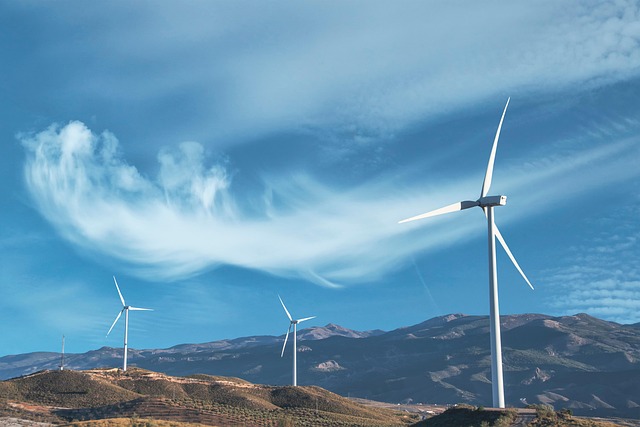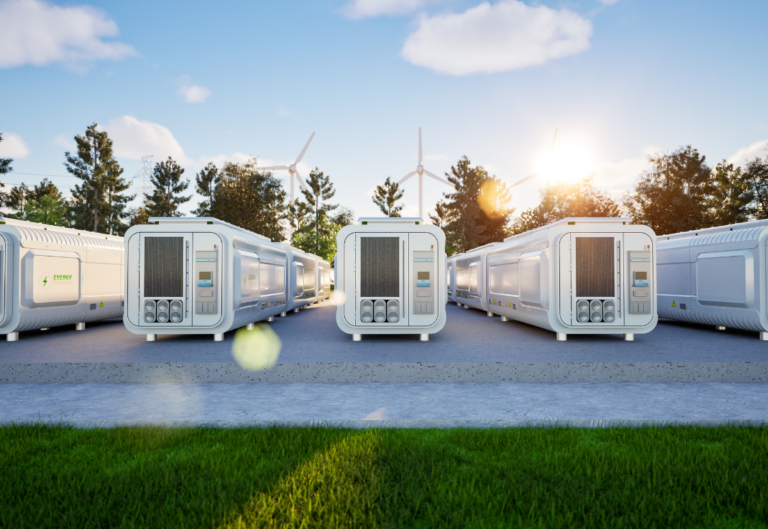In recent months, European wholesale energy prices have risen considerably, thus creating a tense situation for end-users. In addition, Russian’s invasion of Ukraine at the end of February has further destabilized the market. In this exceptional context, European governments and the Commission are putting in place a number of policies to shield consumers from rising energy prices. This article is intended to provide you with an overview of the different instruments implemented at national and European levels to protect consumers and mitigate the effect of rising wholesale market prices.
The designed measures can be divided into two main groups: immediate and medium-term measures. The former aim to minimize the impact on end-users while the latter consist of strategic plans in order to accelerate the transition to green energies, cut the dependence on Russian fuels and diversify suppliers. On another level, discussions about the redesign of the power market and its decoupling from gas are underlying. The last European Council (which took place at the end of March) decided to allow both Spain and Portugal to implement specific price decoupling measures taking into account the “Iberian singularity”. This market intervention was still being negotiated between European countries and the Commission at the time this article was closed.
With regards to measures oriented specifically to end-users, each country decided to implement a particular set of rules depending on their specific context and market framework. In general terms, those measures consist of VAT and tax reductions, bill discounts, price limitations, and different forms of bonuses or funds for vulnerable households, as well as clawbacks, revenue deductions and bailouts for companies.

FRANCE
Although c.75% of its electricity is generated by its nuclear fleet, France has seen a surge in power prices in the last months, pushing electricity prices even higher than in neighbouring countries. This led French authorities to look for ways to mitigate the impact on consumers.
The first measures that were carried out were aimed at protecting residential consumers. This was done by freezing both gas and electricity tariffs and introducing energy and inflation vouchers for lower income households:
- An exceptional €100 energy voucher was distributed in December 2021, helping the 5.8 million households – who had already received an energy cheque for an average amount of €150 back in April 2021 – to pay their energy bills. This support, which is targeted at the poorest households, represents almost €600 million in aid.
- A tariff shield has been put in place for gas prices, with regulated tariffs being frozen at their October 2021 level for the duration of the winter (and further extended until the end of 2022). The State will cover the additional costs incurred by suppliers as a result of this freeze, in accordance with the provisions set out in the 2022 Finance Act.
- Finally, an inflation allowance of €100 will be granted to the 38 million people with a net monthly income below €2,000 (over 60% of households), representing an additional State support of €3.8 billion. This aid is paid in one go by employers to employees, who are fully compensated by the State for these payments via aid for the payment of their social security contributions.
Additionally, a reduction of the tax on electricity tariffs, TICFE, (from 22.50 €/MWh to 1 €/MWh for households and to 0.50 €/MWh for companies) was also decided, at a cost amounting to 15 billion euros for the public finances.
The rise in gas prices observed at the beginning of last winter, which pushed electricity prices to new heights, triggered another set of measures, applying more broadly, and which were included in the 2022 Finance Act:
- The securing and extension of the electricity tariff shield, announced by the Prime Minister, has blocked the increase of regulated electricity sales tariffs to 4% (including tax) on 1 February for residential consumers. Without this intervention, the increase would have reached 35%.
- Given the exceptional situation, it was also decided to extend the tariff shield by limiting the increase in regulated electricity sales tariffs to 4% for small professional consumers in metropolitan France, as well as for all professional consumers in the overseas territories and Corsica (non-interconnected areas) who benefit from these tariffs.
This was just a start for the inclusion of the professional and industrial consumers in the cost equation. A measure mitigating the impact on prices at a wider scale was yet to come… On 13 January, faced with the unprecedented rise in electricity prices in the preceding weeks, and despite a context of tensions in the availability of French production facilities and in gas supplies to Europe, the government announced an exceptional measure to preserve the purchasing power of the French and the competitiveness of business supplies:
- An exceptional increase by 20 TWh of the volume of ARENH to be delivered in 2022, i.e., EDF selling some additional 20 TWh to alternative suppliers,
- Prices were detailed a few weeks later: EDF would sell at 46.2 €/MWh and buy the same volumes at… 256.98 €/MWh!
- Suppliers should pass the full benefit on to consumers. This point will be closely monitored in conjunction with the Energy Regulation Commission, so that all consumers can benefit from the competitiveness of the French nuclear power fleet.
The European authorities have already been informed of this decision, which is part of the exceptional measures taken to adapt to the energy price crisis affecting all European countries. Still, this additional measure is estimated to cost an additional 8 billion euros to EDF (not mentioning foregone earnings) …
Even though some more measures have been adopted, affecting niche sectors (cogenerations’ operation stopped in early March), the recent crisis in Eastern Europe has mainly changed the strategic view on the French energy sector in a more structural way, emphasizing the role of energy as an issue of national sovereignty. A change in standpoint that is reflected in the agenda of the coming presidential elections: some candidates are pushing for an accelerated change towards renewable energy, while others are putting the nuclear sector back at the centre of the game and considering the development of new EPR units.
GERMANY
The costs of heating and electricity hit record highs due to post-pandemic supply issues. Hence, at the end of February 2022, the German coalition government introduced a first relief package to help consumers. This wide-ranging plan of measures included, amongst others:
- Complete elimination of the EEG-Umlage (renewable energy levy)
Possibly one of the most controversial surcharges (in 2021, it accounted for one fifth of a household’s electricity bill) and one of the main pillars of the German Energiewende (Energy Transition) as well as a defining feature of the Renewable Energy Act (Erneubare Energien Gesetz – EEG). This renewable surcharge covers the guaranteed feed-in tariff for renewable energy installations and corresponds to the difference between the electricity wholesale prices and the higher, fixed price for green energy, which is guaranteed by law to renewable power producers for 20 years.
Following the energy price hike across Europe in the second half of 2021, the government reduced this surcharge from €6.5cts/kWh to €3.7cts/kWh starting 1 January 2022 (and scheduled to be ended as of 2023). This would reduce by €100 the annual power bill of a household that consumes 3,500kWh per year. However, a further increase of energy prices caused by the war between Russia and Ukraine prompted the government to completely abolish this levy. As a result, the fixed remuneration for renewable power installations will be paid directly from the state´s budget using income from the sale of carbon allowances.
- One-off heating cost allowance
In early February 2022, the government decided to grant low-income households a one-off heating cost allowance. In a response to increasing prices for oil and gas, consumers who receive housing benefits or student/trainee support will receive between €115 and €175, to be paid out in summer when many households will face bills reflecting the higher prices.
- “Climate payment”
In the longer term, a so-called “climate payment” to all households is envisaged to compensate citizens for rising energy costs due to higher emissions allowances pricing.
- Social housing subsidies
Social housing subsidies have also been increased to account for a higher emissions allowances price on heating fuels as of 2022.
With Russia’s invasion in Ukraine exacerbating high energy and petrol prices, the German coalition government announced, in mid-March 2022, it was set to introduce a second relief package to limit the impact on consumers. Below are some of the proposed measures:
- Heating costs:
Heating is the area where German households are under the most pressure.
- Electricity:
Measures to help save energy, such as reducing car emissions or replacing gas heating systems. Additionally, market-based incentives should be used to ensure that those who use less energy also have lower costs.
- Mobility:
Introduce a state fuel subsidy for car drivers. The amount of the subsidy would be deducted from a driver’s bill when paying at the petrol station (the operator of the petrol station would then have to submit the receipts to the tax authorities in order to claim the money back). Alternatively, set-up a monthly payment to lower-income households, and the amount of the subsidy would depend on the income. However, it remains unclear how the money can be distributed, because the country lacks a system via which all residents could be paid.
- “Energy bonus”:
To pay back revenues of the national carbon price on transport and heating fuels to citizens. However, this proposal is faced with the same obstacle described above.
SPAIN
The Spanish government reacted at different levels to the energy crisis.
In June 2021, the VAT rate was reduced from 21% to 10% for small customers and the generation tax (7%) was temporarily suspended. A few months later, the electricity tax was reduced from 5.11% to 0.5%. These measures were meant to last for a few months but, as the energy crisis worsened, they were extended.
In August 2021, the Spanish government passed a bill setting up a CO2 clawback to non-CO2 emitting generation installed before 2003 (mainly for hydro and nuclear power producers, as well as for unregulated renewables). Thereby, these energy companies should deduct their market revenues from the CO2 prices. In September of the same year, a new Royal Decree was adopted which establishes a temporary deduction of market revenues for non-CO2 emitting power plants in order to reduce customers’ bills. The amount is calculated in proportion to the excess of natural gas prices over a base gas price set at 20 €/MWh.
In October 2021, another Royal Decree was adopted that increased the social bonus to vulnerable consumers from the current 25% to 60% and from 40% to 70% in the case of severely vulnerable people. Moreover, the budget for the thermal social bonus is doubled in 2021, rising to €202.5 million.
Other measures include the future implementation of a new type of long-term power purchase auctions which will be held alongside the wholesale market auctions. Also, the introduction of a cap on gas prices for the regulated tariff of natural gas, known as the “last resort tariff” (TUR) for small customers.
It is worth mentioning that Spain has recently taken the lead in a series of proposals at European level aiming to disconnect power prices from gas prices and to directly reduce (or even cap) the power prices. These measures, which seemed far-fetched a few months ago, are gaining more consensus among countries such as Italy, France, Greece and Portugal as the situation in Ukraine persists, but are being opposed by northern countries such as Netherlands and Germany, as it may affect the way the market works. By end of March, the EU recognised the “Iberian singularity”, opening the door for discussions – to be held in May – on a cap price on gas for power generation applying (locally) to the Iberian Peninsula. Spanish Ecological Transition Minister Teresa Ribera said, “We have not yet done more than start the work with the Commission, so I would ask for tranquillity and patience”. The measures should be in force until 31 December 2022.
ITALY
Due to the structure of its power generation (no nuclear but fossil production representing 53% of the total demand), Italy is one of the most exposed European countries to the current energy crisis, both in terms of gas and electricity. Initially, Italy had looked to mitigate the final price of gas and electricity for industrial customers and households. Italy strongly supports the idea of decoupling gas and electricity prices, led by the Spanish government, which has been discussed at the European Council at the end of March. Given its dependence on Russian gas, Italy has hardly refused the exclusion of Gazprom’s bank from the SWIFT system.
In October 2021, the Italian government announced a first relief package for gas and power price reduction, for industrial consumers and households, reducing levies equivalent to €3.5 billion for Q4 2021. The measures were later extended to Q1 2022 for a total amount of €6 billion.
On last 27 January, Italy’s government adopted additional temporary measures to combat the impact of high energy prices, including a contentious article introducing a windfall tax on renewable generation. With these measures, the total aid amounted to more than €10.5 billion.
- The first of these measures applied to the first quarter of 2022 and reduced system costs for large users with more than 16.5 kW contracted by removing the system cost element from their bills. The expected €1.2 billion aid would be met largely by diverting income from CO2 auctions.
- A second measure took the form of a tax credit for companies that have seen their energy costs increase by more than 30% compared to 2019. The financial impact of this measure is estimated at €540 million.
- The third measure was an effective “clawback” on renewable income from February 1 to December 31, 2022. This measure impacts PV plants that have fixed tariffs under the Conto Energia scheme, as well as hydro, geothermal and wind installations that are not part of the contracts for difference schemes. The reimbursement would be based on a differential of the plant’s income over its average hourly price from the date it was put into service, with a starting limit of January 2010 and up to December 31, 2020, adjusted to inflation. Supply contracts agreed before approval, which are not linked to the spot price, would generally be exempted, according to the Decree.
Recently, on 18 March, the Italian government announced new measures amounting to €4.4billion. These measures will be funded with higher taxes on extra-profits made by energy companies (€4billion) and extra-income from VAT on petrol (€500million). Measures for the energy sector include:
- Fuel prices’ reduction of 25 cents until the end of April
- The increase of the beneficiaries of the social bonuses (increasing the number of eligible families eligible from 1.2m to 5.2m)
- The possibility for consumers to pay their energy bills in instalments for up to two years
- The increase of tax credits for energy-intensive electricity and gas companies
Italy is very exposed, not only to prices but also to physical deliveries. 35% of gas imports come from Russia and there is no immediate possible alternative to replace this provider in case of an embargo. Some announcements have been made in this regard so far:
- Simplification of the procedure for the installation of new renewables energies.
- Possible extension of the lifetime of coal-fired power plants (with a previously set limit for end of 2025)
- Increase of domestic gas production (to 5bcm against 3.2bcm currently)
- Relaunch the construction project of 2 LNG terminals.
THE NETHERLANDS
The Dutch government has decided to reduce the energy tax for households and companies in 2022 at an estimated cost of €2,7 billion and €0,5 billion, respectively.
Currently, Dutch consumers pay the highest pump price in Europe. Thereby, this tax reduction, partially financed by gas sales paid a the price of gold, will start on 1 April, with excise duties being reduced by 21% on diesel and petrol, and 4.1% on LPG and LNG. Moreover, on 1 July 2022, the VAT on energy (power, natural gas and district heating) should be lowered from 21% to 9%.
In addition to these tax cuts, at the beginning of February, the government planned to spend €150 million on measures to improve insulation of the poorest households with high energy bills and/or poorly insulated houses. This envelope was finally increased to €300 million. To go further, an exceptional energy allowance of €800 – from €200 previously – is being put in place for these households.
It should be noted that the Netherlands, which is oriented towards national subventions and benefits from the current level of gas prices, is opposed to the proposals of the southern European countries on intervention in the energy markets and on the proposed price cap for these markets: “We are very reluctant to intervene in the markets, because we want to avoid disrupting the markets in the short term, as this could hamper investments in sustainable energy,” said Dutch climate minister Rob Jetten on Thursday, 18 March.
UNITED KINGDOM
The government has set up a £500 million fund to help the poorest households pay their energy bills. This fund adds to the Warm Home Discount scheme –people on low income will benefit from a £140 discount on their electricity bills for winter period 2021-2022 – and to the Winter Fuel Payment – a grant in the range of £100 and £300 to help end-customers (born on or before 26 September 1955) pay their heating bills.
In February 2022, Chancellor Rishi Sunak announced that £350 would be granted to the vast majority of households to help them pay rising energy bills. This will cover just over half of the £693 increase in the maximum energy cost price for households after 1 April 2022.
Ofgem, the country’s energy regulator, allocates customers of energy companies which have faced bankruptcy – due to rising wholesale gas prices – to new suppliers. The government is considering giving loans to those energy companies that take over these customers. However, on 20 September 2021, Secretary of State for Economic Affairs, Kwasi Kwarteng, clearly said that “there will be no reward for failure or mismanagement, and smaller energy companies will not receive bailouts.”
Moreover, Ofgem has raised the cap on the most commonly used tariffs by 12-13% from October, following a previous rise in April, due to high wholesale costs. There are fears that Ofgem could implement a further rise in April 2022, taking the price cap to £1,995, following a series of energy company bankruptcies in the country.
The government is also bailing out major CO2 emitting manufacturers to avoid disruptions in the food supply chain and is also considering intervening in the domestic carbon market in December should prices remain high.
BELGIUM
The Belgian government has decided to reduce VAT on gas and electricity to limit the impact of rising energy prices. On 1 February 2022, the Prime Minister, Alexander De Croo, announced a reduction for electricity from 21% to 6% from March to July. In addition, households with gas or oil heating will also receive a cheque of €200 euros.
Regarding retail price regulation, excise duty on diesel and petrol will be reduced by 17.5 cents per litre, promising Belgians a saving of €10 on a 60l tank.
In terms of aid to the poorest households, in October 2021, the Minister of Energy extended the social energy tariff, introduced during the pandemic, until the end of March 2022, at a cost of €208 million. In the same month, the government also announced an energy voucher of €80 euros for the poorest households. And from 12 October, a €16 million Gas and Electricity Fund was to be set up to help households that cannot benefit from social tariffs.
Other measures taken to keep revenues constant include the replacement of taxes such as green energy certificates with special taxes which the government can easily adjust to compensate energy price variations, and the prohibition of unilateral changes in energy contracts to prevent energy suppliers from increasing consumers’ bills.
Haya Energy Solutions Team






